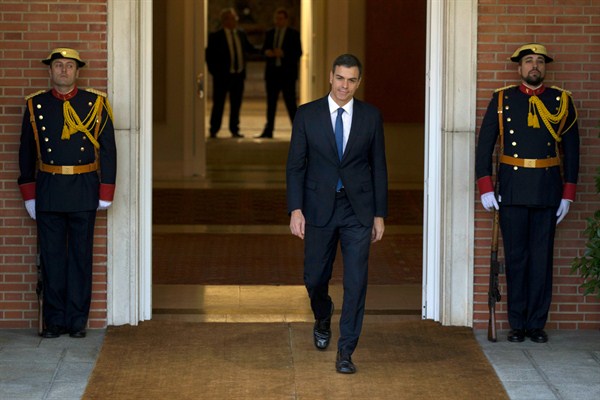Mariano Rajoy’s luck finally ran out. For years, the conservative Spanish prime minister succeeded by waiting out his problems. When it looked like Spain might follow Greece and Portugal in requiring a European bailout in 2012, Rajoy refused to ask for help. He was vindicated when the European Central Bank instead announced its massive bond-buying initiative, what is called “Outright Monetary Transactions.” The bank didn’t actually buy Spanish bonds, but the mere possibility that it might stabilized the markets.
When Rajoy lost his majority in parliament in 2015, he refused a mandate to form a government, letting the Socialists try—and fail—to put together a coalition. In snap elections the following year, Rajoy still fell short but won more seats, giving him leverage to force the Socialists to abstain in a confidence vote in Parliament in 2016.
Rajoy initially took a similar wait-and-see approach to the Catalan independence movement. He allowed an informal referendum on secession to take place in 2014, despite arguing that it was illegal under the Spanish Constitution. Only when he tried to suppress a second referendum last year did it backfire. Rajoy deployed Spanish riot police to Barcelona and other parts of the region to stop people from voting, aggravating middle-class Catalans who would previously have been content with more autonomy. Had Rajoy been willing to negotiate while Catalonia still had a relatively moderate government, he might have prevented a crisis. But now the region is deeply polarized and led by hard-line separatists who don’t trust the central government in Madrid.

